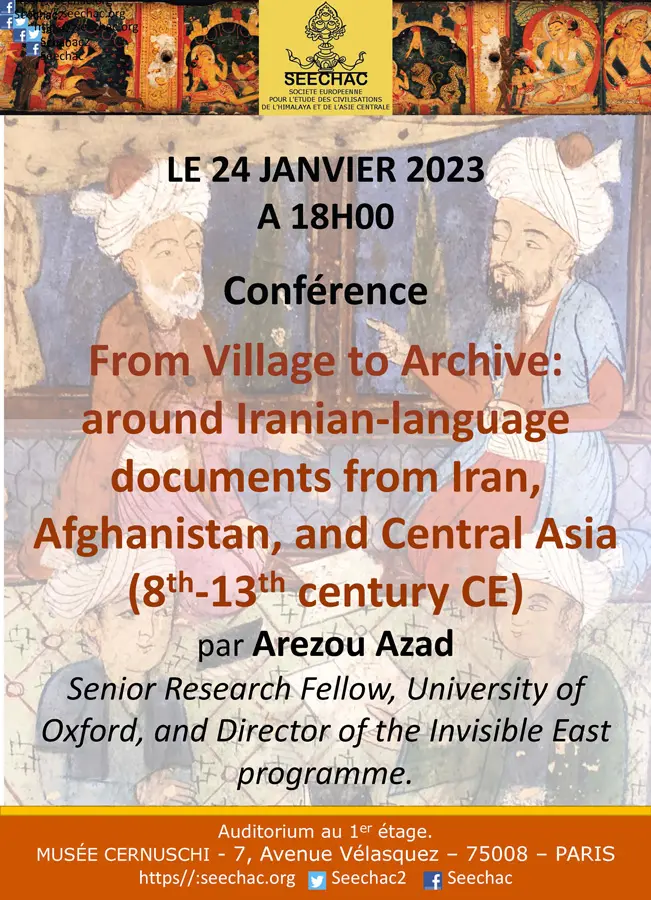NEWS
 SEECHAC'S JANUARY 2023 CONFERENCE
SEECHAC'S JANUARY 2023 CONFERENCE
FROM VILLAGE TO ARCHIVE: ABOUT IRANIAN-LANGUAGE DOCUMENTS FROM IRAN, AFGHANISTAN, AND CENTRAL ASIA (8TH-13TH CENTURY CE)(DU VILLAGE AUX ARCHIVES: AUTOUR DES DOCUMENTS EN LANGUE IRANIENNE D'IRAN, D'AFGHANISTAN ET D'ASIE CENTRALE (VIIIE-XIIIE SIÈCLES DE NOTRE ÈRE) Par par Arezou Azad, Senior Research Fellow at the Faculty of Asian and Middle Eastern Studies, University of Oxford, and Director of the Invisible East
Tuesday 24 January 2023, at 6pm, in the auditorium of the Cernuschi Museum. (in English).
The story of the first five hundred years of Islamic rule in the eastern Islamic lands (in what is now Iran, Afghanistan and Central Asia), from the Arab conquests of the 8th century to the Mongol takeover of the 13th century has generally been told through the eyes of court historians and religious scholars. Many of the authors of these texts were based in large urban centres and in distant places such as Syria and Egypt. As important as these accounts are for the history of empires and religious institutions, they tell us little about the private or public lives of ordinary people: cobblers, shopkeepers, small and medium-sized civil servants, non-royal women, slaves, tax collectors, etc. etc.
The focus of Oxford University's Invisible East programme on documents - contracts, administrative documents, private letters, etc. - is on ordinary people. - focuses on ordinary people. This talk will present some of the programme's exciting findings on the socio-economics of rural life, in particular, based on the fascinating 'Bamiyan Papers'. The paper will develop what the potential study of the Invisible East digital corpus, as a whole and through cross-referencing with narrative sources, could offer to the fields of Iranian studies, Islamic history, Afghan studies, linguistics and documentary studies.










